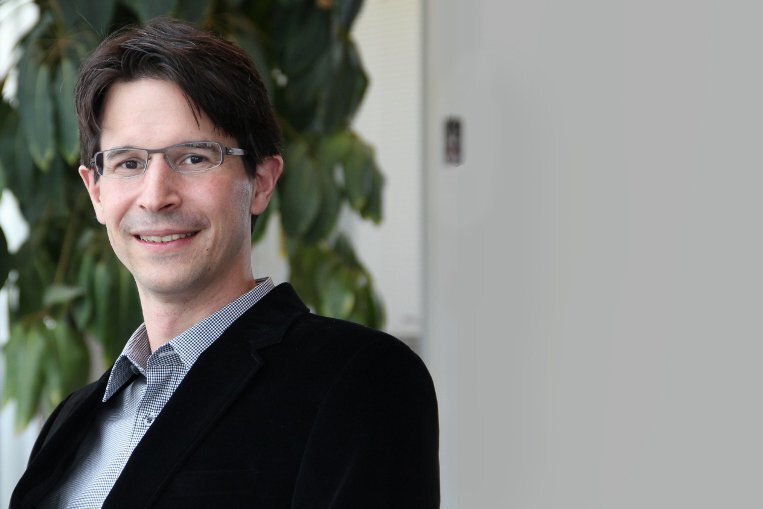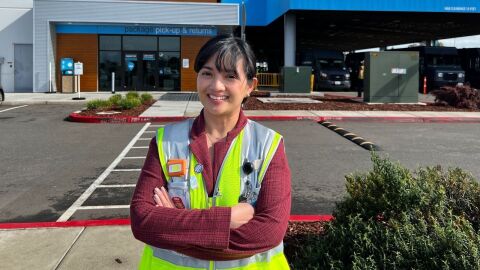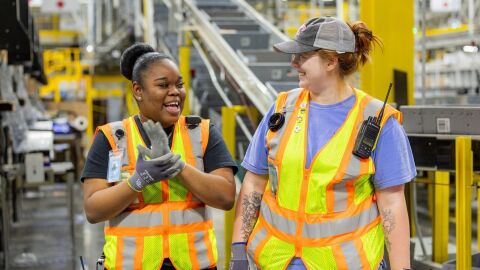For Anima Anandkumar, Principal Scientist on Deep Learning at Amazon Web Services (AWS), the term "Amazon campus" still feels a bit strange. After all, Anandkumar spent her entire professional career on a college campus until just a year ago.
"I was at UC Irvine for six years. I got tenure and was itching for a change. I was looking for a place where I could be surrounded by lots of engineers with strong expertise," said Anandkumar. So she made the leap from academia to Amazon, where she works on enabling computers to improve from experience without needing to be programmed for each new task. She says she hasn't looked back for even a second and has found the transition smoother than she imagined after a life of university research.
"Being able to have an impact on millions of developers and helping them do machine learning was for me a very strong motivation to come here," she said.
Anandkumar isn't alone. Career academics have been joining Amazon's ranks in growing numbers. Nearly 500 have been hired into the Applied Science and Research Science families so far in 2017. They say it's a chance to fulfill themselves intellectually while also doing interesting work.

Matthias Seeger, Principal Applied Scientist at Amazon, left the academic world three-and-a-half years ago. He was an assistant professor at École Polytechnique Fédérale de Lausanne in Switzerland before coming to Amazon to work on machine learning. He says the private sector, and Amazon specifically, is just as intellectually enriching, but with more opportunities.
"This is one of the best features of being a principal scientist at Amazon – that you can switch fields and learn something new. This would be hard to do in academia," said Seeger. "I much enjoy working on projects where the impact on customers is obvious. I also enjoy the teamwork at Amazon, which is quite different to the siloed approach to problems in academia."
Anandkumar, Seeger and other former full-time academics now at Amazon say they still enjoy the freedom to publish breakthrough work and interact with their former academic colleagues. And because they are on the cutting edge in their respective fields, they often work on some of the newest and most innovative projects at Amazon.
"What we do is research that uses the cloud infrastructure. In academia there can be a big barrier to scale up or have strong engineers. Here I have the resources, really the best of both worlds," said Anandkumar, referring to the resources that weren't readily available in the university setting.
She adds that Amazon has given her the freedom to hire and help shape an increasingly diverse workforce. "I've been empowered to make an impact on diversity," Anandkumar said. "The mindfulness of being inclusive is something I care deeply about. Here there is a lot of openness at all levels to be able to make good change."












